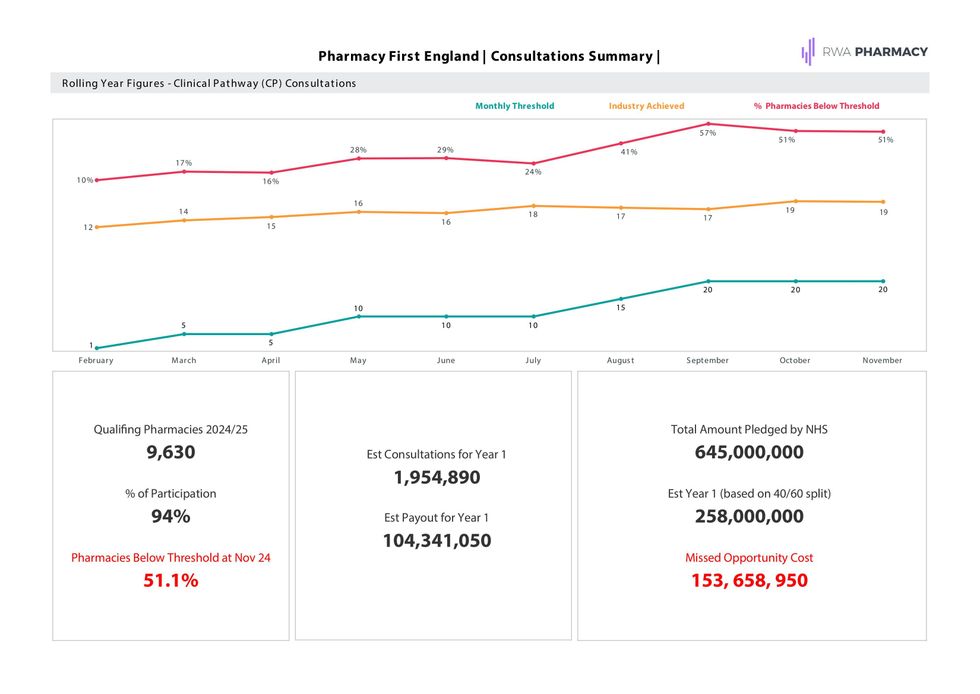In recent years, Mounjaro, a medication used for managing Type 2 diabetes, has gained significant attention due to its effectiveness in controlling blood sugar levels. However, as with any medication, Mounjaro is not without its side effects.
Understanding the potential side effects of Mounjaro is crucial for patients and healthcare providers alike to make informed decisions about its use.
Overview of Mounjaro (tirzepatide)
Mounjaro, known by its generic name as tirzepatide, is a once-weekly injectable medication developed to help manage blood glucose levels in individuals with Type 2 diabetes.
It functions by mimicking the action of the hormone GLP-1 (glucagon-like peptide-1) and GIP (glucose-dependent insulinotropic polypeptide), which play key roles in regulating insulin secretion and blood sugar levels.
Since its introduction, Mounjaro has been praised for its dual-action mechanism that not only helps lower blood sugar levels but also supports weight loss, which is often beneficial for individuals with Type 2 diabetes.
Common Side Effects of Mounjaro
As with many medications, Mounjaro may cause some common side effects that typically do not require medical attention. These side effects may diminish as the body adjusts to the medication over time. Some of the more frequently reported side effects include:
- Nausea: This is one of the most commonly reported side effects of Mounjaro. Patients often experience nausea, especially during the initial weeks of treatment. This can usually be managed by eating smaller, more frequent meals and avoiding high-fat foods.
- Vomiting: Alongside nausea, some individuals may experience vomiting. While this is less common than nausea, it can still be bothersome. If vomiting persists, it's important to consult a healthcare provider.
- Diarrhea: Gastrointestinal issues like diarrhea are also reported by some patients. Staying hydrated and following a balanced diet can help manage this side effect.
- Decreased Appetite: Mounjaro can reduce appetite, which, while beneficial for weight loss, might be uncomfortable for some patients. This side effect often diminishes as the body gets used to the medication.
- Fatigue: Feeling tired or fatigued is another common side effect. This can be managed by ensuring adequate rest and maintaining a healthy lifestyle.
Serious Side Effects of Mounjaro
While the common side effects of Mounjaro are generally manageable and may decrease over time, there are also more serious side effects that require immediate medical attention. These include:
1. Pancreatitis
One of the more severe side effects of Mounjaro is the potential for pancreatitis, an inflammation of the pancreas. Symptoms of pancreatitis include severe abdominal pain, nausea, vomiting, and a rapid pulse. If you experience these symptoms, it's critical to seek medical help immediately.
2. Hypoglycemia
According to clinical trials, Mounjaro can increase the risk of hypoglycemia, especially when used in combination with other diabetes medications like insulin or sulfonylureas. Symptoms of hypoglycemia include dizziness, sweating, confusion, and shakiness. Patients should monitor their blood sugar levels regularly and carry a source of fast-acting sugar with them at all times.
3. Kidney Issues
In some cases, Mounjaro may cause kidney problems, including worsening of existing kidney disease. Signs to watch for include changes in the amount of urine, swelling in the legs or ankles, and fatigue. It's important to have regular kidney function tests while on Mounjaro.
4. Thyroid Tumors
Although rare, there is a potential risk of developing thyroid tumors, including medullary thyroid carcinoma (MTC), with the use of GLP-1 receptor agonists like Mounjaro. Patients should inform their healthcare provider if they have a personal or family history of thyroid cancer or multiple endocrine neoplasia syndrome type 2 (MEN 2).
5. Allergic Reactions
Some individuals may experience allergic reactions to Mounjaro. Symptoms can range from mild (rash, itching) to severe (difficulty breathing, swelling of the face, lips, tongue, or throat). Immediate medical attention is necessary if any signs of a severe allergic reaction occur.
Managing Mounjaro's Side Effects
It's essential for patients to be proactive in managing the side effects of Mounjaro. Here are some strategies that may help:
- Stay Informed: Educate yourself about the potential side effects of Mounjaro. Understanding what to expect can help you prepare and respond appropriately if side effects occur.
- Consult Your Healthcare Provider: Regular communication with your healthcare provider is crucial. If you experience any side effects, whether common or severe, discussing them with your provider can help determine the best course of action.
- Adjusting the Dose: Sometimes, side effects can be managed by adjusting the dosage of Mounjaro. Never adjust your dose without consulting your healthcare provider.
- Lifestyle Modifications: Making dietary changes, such as eating smaller, more frequent meals, staying hydrated, and avoiding high-fat foods, can help manage gastrointestinal side effects like nausea and diarrhea.
- Monitoring: Regular monitoring of blood sugar levels and kidney function can help detect any potential issues early on, allowing for prompt intervention.
The Importance of Individualized Treatment
Mounjaro's side effects can vary from person to person, making it important for treatment to be tailored to the individual's specific needs and health conditions. Factors such as age, weight, existing medical conditions, and other medications being taken can influence how a person responds to Mounjaro.
Healthcare providers play a critical role in ensuring that patients receive the most appropriate treatment for their condition. This involves not only prescribing the correct dosage but also closely monitoring the patient for any signs of adverse effects and adjusting the treatment plan as necessary.
Patients should feel empowered to discuss any concerns or side effects they experience with their healthcare provider. Open communication is key to managing side effects effectively and ensuring the best possible outcomes.
Emerging Research and Future Considerations
As Mounjaro continues to be used in the treatment of Type 2 diabetes, ongoing research is expected to provide further insights into its safety profile. Clinical trials and post-market surveillance are essential for identifying any long-term side effects that may not have been evident during initial testing.
One area of particular interest is the long-term impact of Mounjaro on the pancreas, given the association between GLP-1 receptor agonists and pancreatitis. While the current data suggest that the risk is relatively low, continued monitoring is necessary to ensure patient safety.
Additionally, as more patients use Mounjaro, real-world data will help paint a clearer picture of the medication's risk-benefit profile. This information will be invaluable for healthcare providers when making treatment decisions and for patients in understanding the potential risks and benefits of their medication.
Conclusion
Mounjaro represents a significant advancement in the management of Type 2 diabetes, offering effective blood sugar control and the added benefit of weight loss for many patients. However, like all medications, it comes with a risk of side effects, some of which can be serious.
Patients and healthcare providers must work together to monitor for any side effects and manage them promptly. By staying informed, communicating openly, and making necessary adjustments to the treatment plan, the risks associated with Mounjaro can be minimized, allowing patients to benefit from its therapeutic effects.
For those considering Mounjaro, understanding the side effects of Mounjaro is an essential step in making an informed decision about their diabetes management. As always, any concerns or questions should be discussed with a healthcare provider to ensure that the treatment plan is safe and effective for each individual.
As the medical community continues to learn more about Mounjaro, its role in diabetes care will likely evolve, guided by ongoing research and patient experiences. Staying informed and engaged with your healthcare provider will help ensure that you receive the best possible care tailored to your needs.
Frequently Asked Questions
Who should not take Mounjaro?
Mounjaro is not recommended for individuals with a personal or family history of medullary thyroid carcinoma (MTC) or multiple endocrine neoplasia syndrome type 2 (MEN 2). It should also be used with caution in patients with a history of pancreatitis or severe kidney issues. Always discuss your medical history with your healthcare provider before starting Mounjaro.
How can I minimize the risk of side effects while taking Mounjaro?
To minimize the risk of side effects while taking Mounjaro, follow your healthcare provider's instructions carefully. This includes taking the medication as prescribed, monitoring your blood sugar levels regularly, and staying informed about potential side effects.
Making dietary adjustments, such as eating smaller meals and avoiding high-fat foods, can help manage gastrointestinal symptoms like nausea and diarrhea. Regular check-ups and open communication with your healthcare provider are key to safely managing your treatment.
Can lifestyle changes help reduce the side effects of Mounjaro?
Yes, making certain lifestyle changes can help reduce the side effects of Mounjaro. For instance, adopting a balanced diet with smaller, more frequent meals can help alleviate gastrointestinal symptoms like nausea and diarrhea. Regular physical activity, staying hydrated, and managing stress can also contribute to overall well-being and may lessen the impact of side effects. Always discuss any lifestyle changes with your healthcare provider to ensure they complement your treatment plan.
Are there any long-term side effects associated with Mounjaro?
The long-term side effects of Mounjaro are still being studied, but ongoing research suggests that there could be potential risks, such as an increased chance of developing pancreatitis or thyroid tumors over time. Regular monitoring and consultations with your healthcare provider are essential to manage any long-term risks associated with this medication.
Can Mounjaro be taken with other diabetes medications, and does it increase the risk of side effects?
Mounjaro can be used in combination with other diabetes medications, such as metformin or insulin. However, combining these treatments may increase the risk of hypoglycemia (low blood sugar). Your healthcare provider will carefully assess your treatment plan to minimize the risk of side effects and ensure that your blood sugar levels are managed effectively.
Sources
Lin, F., Yu, B., Ling, B., Lv, G., Shang, H., Zhao, X., Jie, X., Chen, J., & Li, Y. (2023). Weight loss efficiency and safety of tirzepatide: A Systematic review. PLoS ONE, 18(5), e0285197. https://doi.org/10.1371/journal.pone.0285197
Eli Lilly and Company. (2023). Prescribing Information of Mounjaro. Retrieved from https://uspl.lilly.com/mounjaro/mounjaro.html
Knudsen, L. B., Madsen, L. W., Andersen, S., Almholt, K., De Boer, A. S., Drucker, D. J., Gotfredsen, C., Egerod, F. L., Hegelund, A. C., Jacobsen, H., Jacobsen, S. D., Moses, A. C., Mølck, A., Nielsen, H. S., Nowak, J., Solberg, H., Thi, T. D. L., & Zdravkovic, M. (2010). Glucagon-Like peptide-1 receptor agonists activate rodent thyroid C-Cells causing calcitonin release and C-Cell proliferation. Endocrinology, 151(4), 1473–1486. https://doi.org/10.1210/en.2009-1272



![Potential Side Effects of Mounjaro [What You Need to Know]](https://www.pharmacy.biz/media-library/image.jpg?id=54516976&width=1245&height=700&quality=90&coordinates=0%2C29%2C0%2C29)





 Harry McQuillan
Harry McQuillan





 Wes Streeting outlines ambitious NHS reform plansPic credit: Getty images
Wes Streeting outlines ambitious NHS reform plansPic credit: Getty images Pharmacies played a critical role during the pandemicPic credit: Hollie Adams/Getty Images
Pharmacies played a critical role during the pandemicPic credit: Hollie Adams/Getty Images




 Shivam Modi
Shivam Modi